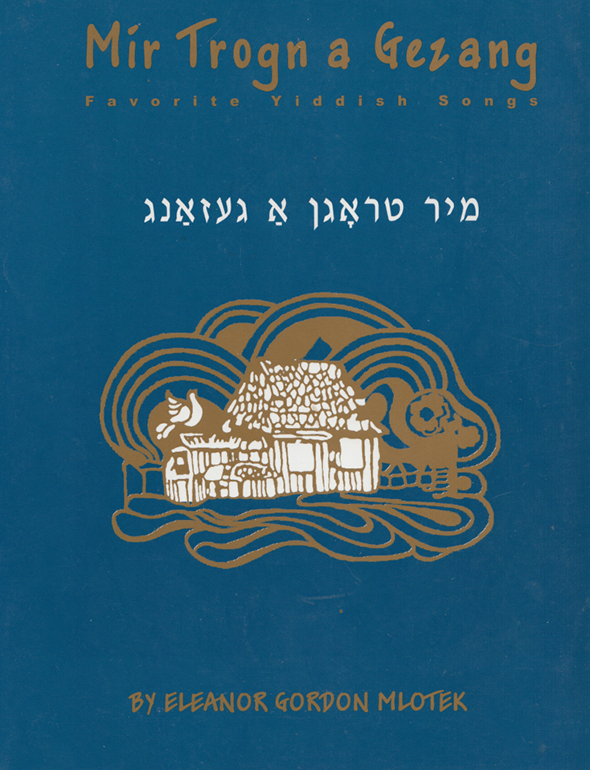Poem Der Shoymer, by Sh. I. Imber (1889-1942); music by Chaim Ritterband, published in 1935.

Come on out, my girl,
when the night is sleeping quietly
and come, my girl,
to where the guards stand watch.
I am awake there, by the light of the stars,
to guard your father from evil,
but tonight in that same place
his daughter’s fervent heart will be stolen.
Aroyskumen zolstu, mayn meydl,
Ven shtil vet shoyn shlofn di nakht,
Un tsukumen zolstu, mayn meydl,
Vu s’haltn di shoymrim di vakh.
Dort vakh ikh baym glants fun di shtern
Tsu hitn dayn foter fun beyz,
Dokh muz haynt geganvet dort vern
Zayn tekhterls hertsele heys.
אַרויסקומען זאָלסטו, מײַן מײדל,
װען שטיל װעט שױן שלאָפֿן די נאַכט;
און צוקומען זאָלסטו, מײַן מײדל,
װוּ ס’האַלטן די שומרים די װאך.
דאָרט װאַך איך בײַם גלאַנץ פֿון די שטערן
צו היטן דײַן פֿאַטער פֿון בײז,
דאָך מוז הײַנט געגנבֿעט דאָרט װערן
זײַן טעכטערלם הערצעלע הײס.
Song Title: Aroyskumen Zolstu Mayn Meydl

First published in 1972, Mir Trogn A Gezang: Favorite Yiddish Songs was reprinted six more times (in 1977, 1982, 1985, 1987, 1988, 2000) due to popular demand. The songs in this anthology represent a sampling of beloved folk and well-known Yiddish songs, many of which are scattered in various song collections; some appear in very rare and inaccessible collections; and some were never before published. Folk songs comprise about a third of this volume and were selected mainly on the basis of popularity and sometimes for their historic significance. Needless to say, they are only representative of the vast, rich treasure of Yiddish folk material. The selection was made not only on the basis of personal preference, but in the knowledge they are favorites of many who sing these songs. Most of the songs represent the repertoire that was sung at Yiddish summer camps, May 1st demonstrations and at social gatherings. Many songs were introduced to American Jewry by Jewish immigrants who came to the United States after World War II, for whom these songs had been favorites in Poland and other East European communities destroyed by the Nazis.